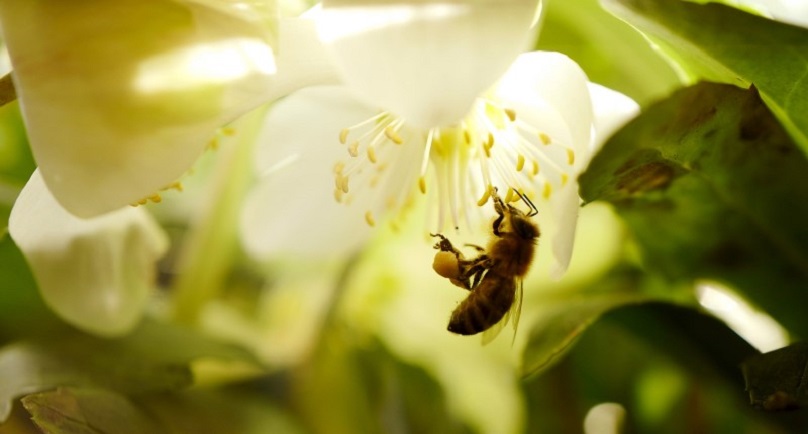Image: A bee collects pollen from a Christmas Rose (Hellabore) blossoms on a sunny morning in Hanau, 30 km (18.6 miles) south of Frankfurt, Germany, December 26, 2015. REUTERS/Kai Pfaffenbach
By P.J. Huffstutter
CHICAGO (Reuters) – An insecticide widely used on cotton plants and citrus groves can harm bees that come into contact with those crops under certain conditions, the U.S. Environmental Protection Agency said on Wednesday.
The agency said a preliminary risk assessment of imidacloprid, a neonicotinoid insecticide chemically similar to nicotine, found that chemical residues of more than 25 parts per billion would likely harm bees and their hives and result in the bees producing less honey.
The EPA, which collaborated with California’s Department of Pesticide Regulation, said data showed imidacloprid residues in pollen and nectar above that threshold level in citrus and cotton crops.
But residues found on corn and leafy vegetables were below at-risk levels, the agency said. Some crops needed more testing.
The federal agency is expected to finalize a broader assessment of risks the chemical may pose to pollinators by the end of the year.
Debate over neonicotinoids, also known as neonics, has intensified as concern grows over the health of pollinators crucial to the production of many foods.
A two-year moratorium on imidacloprid and two other neonics took effect in Europe last year. The EPA proposed a rule last year to create temporary pesticide-free zones when crops are in bloom and farmers are using commercial pollinators such as bees.
On Wednesday, the Center for Food Safety and a coalition of farmers and agriculture groups filed a lawsuit against the EPA, accusing it of failed oversight over millions of pounds of neonic-coated seeds sold and planted.
The case was filed in U.S. District Court for the Northern District of California. The EPA could not be reached for comment.
Pesticide critics called on the EPA on Wednesday to suspend the sale and use of imidacloprid and other neonicotinoid pesticides.
“They’re not taking into account the realistic exposures in the field, they’re not looking at the impact of these pesticides on bees or wild pollinators over time,” said Lisa Archer, food and technology program director at Friends of the Earth.
Bayer CropScience, Syngenta AG and other firms that produce or sell neonic products have said mite infestations and other factors are to blame for bee deaths.
Bayer Cropscience said in a statement it was reviewing the EPA’s preliminary findings, but added they appeared to “overestimate the potential for harmful exposures in certain crops, such as citrus and cotton, while ignoring the important benefits these products provide and management practices to protect bees.”
(Reporting by P.J. Huffstutter in Chicago; Editing by Peter Cooney)
Copyright 2015 Thomson Reuters. Click for Restrictions.


